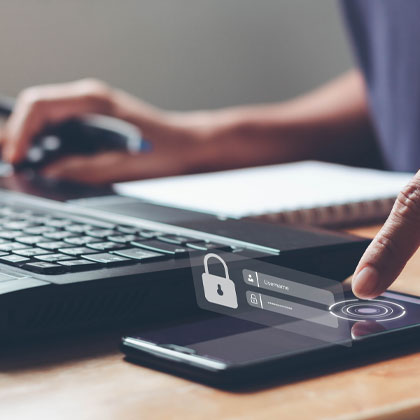Look out for IRS phishing scams this tax season: Information Security Awareness - UT Southwestern, Dallas, Texas
https://www.utsouthwestern.edu/employees/information-security/awareness/updates/irs-phishing-scams.html

Malicious links in emails or text messages are designed to trick recipients into sharing Social Security numbers, driver’s license numbers, or other personal information that could be used in identity theft or to file fraudulent tax claims.
Look out for holiday cyberscams: Information Security Awareness - UT Southwestern, Dallas, Texas
https://www.utsouthwestern.edu/employees/information-security/awareness/updates/holiday-cyberscams.html

The holidays are very appealing to hackers, which lead to an uptick in phishing and ransomware attacks.
Avoid falling prey to multifactor fatigue: Information Security Awareness - UT Southwestern, Dallas, Texas
https://www.utsouthwestern.edu/employees/information-security/awareness/updates/avoid-falling-prey.html

A cyberattack gaining in popularity is “multifactor fatigue,” when numerous fraudulent push notifications are sent to the owner of a compromised account.
Use caution to protect personal data, UTSW network: Information Security Awareness - UT Southwestern, Dallas, Texas
https://www.utsouthwestern.edu/employees/information-security/awareness/updates/use-caution.html

Fraudulent links (URLs) and attachments found in emails can lead you to dangerous sites, putting your data, computer, and the UTSW network at risk.
Maybe you’ll break the internet – just don’t let it break your security: Information Security Awareness - UT Southwestern, Dallas, Texas
https://www.utsouthwestern.edu/employees/information-security/awareness/updates/break-your-security.html

We might be gradually making our way back to an in-person world, but online browsing and social media are still defining the way we communicate.
Information Security: Click Carefully - UT Southwestern, Dallas, Texas
https://www.utsouthwestern.edu/employees/information-security/awareness/click-carefully/
Tips from Information Security regarding malicious website links in emails, text messages, social media posts, pop-up windows, and more. Learn how to protect your UTSW network from risk.
Basic Research: FAQs - UT Southwestern, Dallas, Texas
https://www.utsouthwestern.edu/employees/spa/faqs/basic/
Basic research is systematic study directed toward greater knowledge or understanding of the fundamental aspects of phenomena and of observable facts without specific applications towards processes or products in mind.
Avoid Smishing: Information Security Awareness - UT Southwestern, Dallas, Texas
https://www.utsouthwestern.edu/employees/information-security/awareness/updates/avoid-smishing.html

Smishing is a form of phishing in which an attacker uses a text message to trick a recipient into clicking a link and sending private information or downloading malicious programs to a smartphone.
Practice good laptop security: Information Security Awareness - UT Southwestern, Dallas, Texas
https://www.utsouthwestern.edu/employees/information-security/awareness/updates/practice-laptop-security.html

The greatest risk to laptop security is typically leaving a computer in an unattended location such as an airport, hotel, restaurant, or inside a vehicle.
Multi-Factor Authentication (MFA): Information Security Awareness - UT Southwestern, Dallas, Texas
https://www.utsouthwestern.edu/employees/information-security/awareness/updates/multi-factor-authentication.html

Multi-factor authentication (MFA) is a login process that requires you to verify your identity in more than one way. Use MFA to ensure you’re the only person who can access your account, even if your password is stolen.
